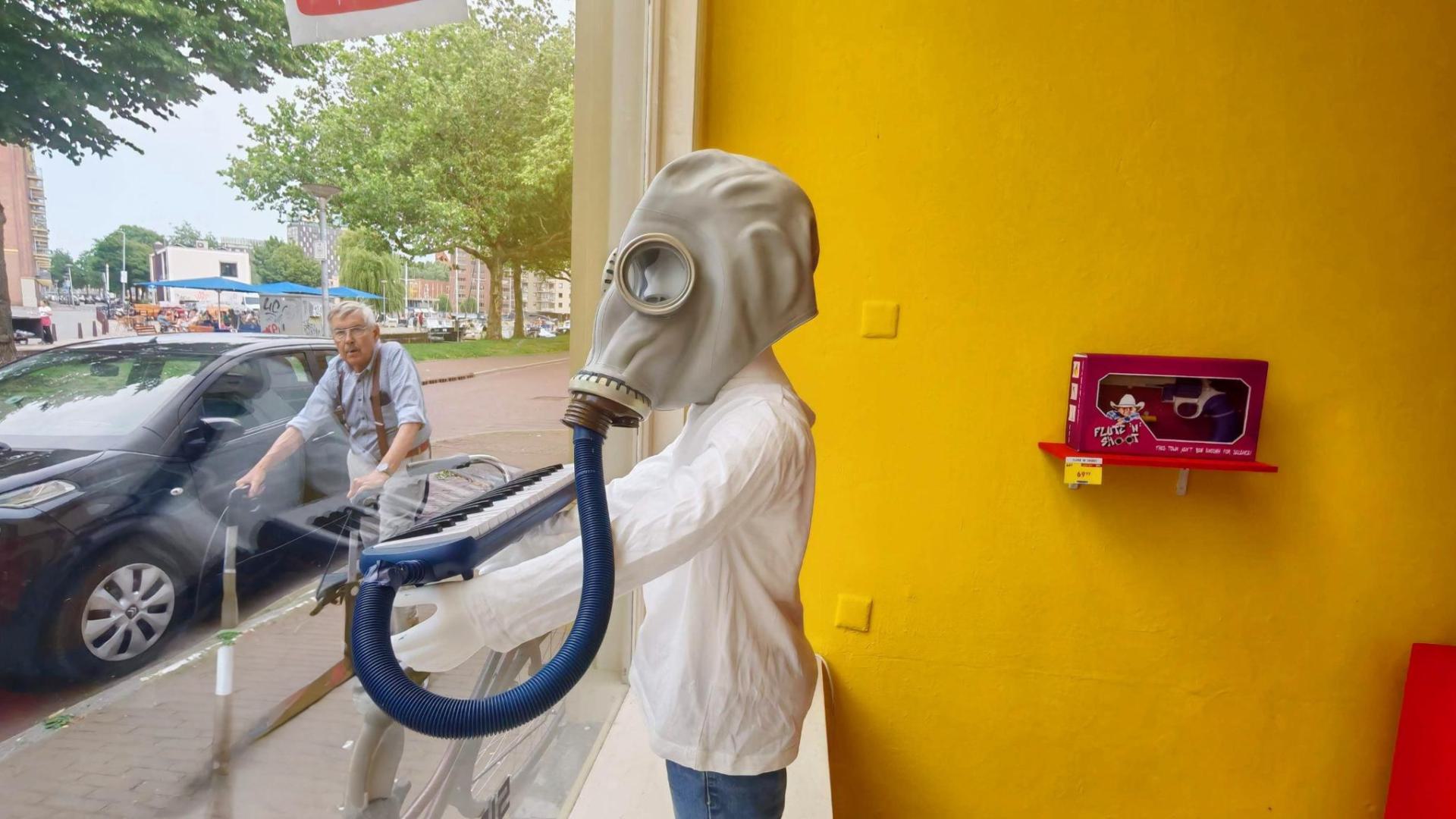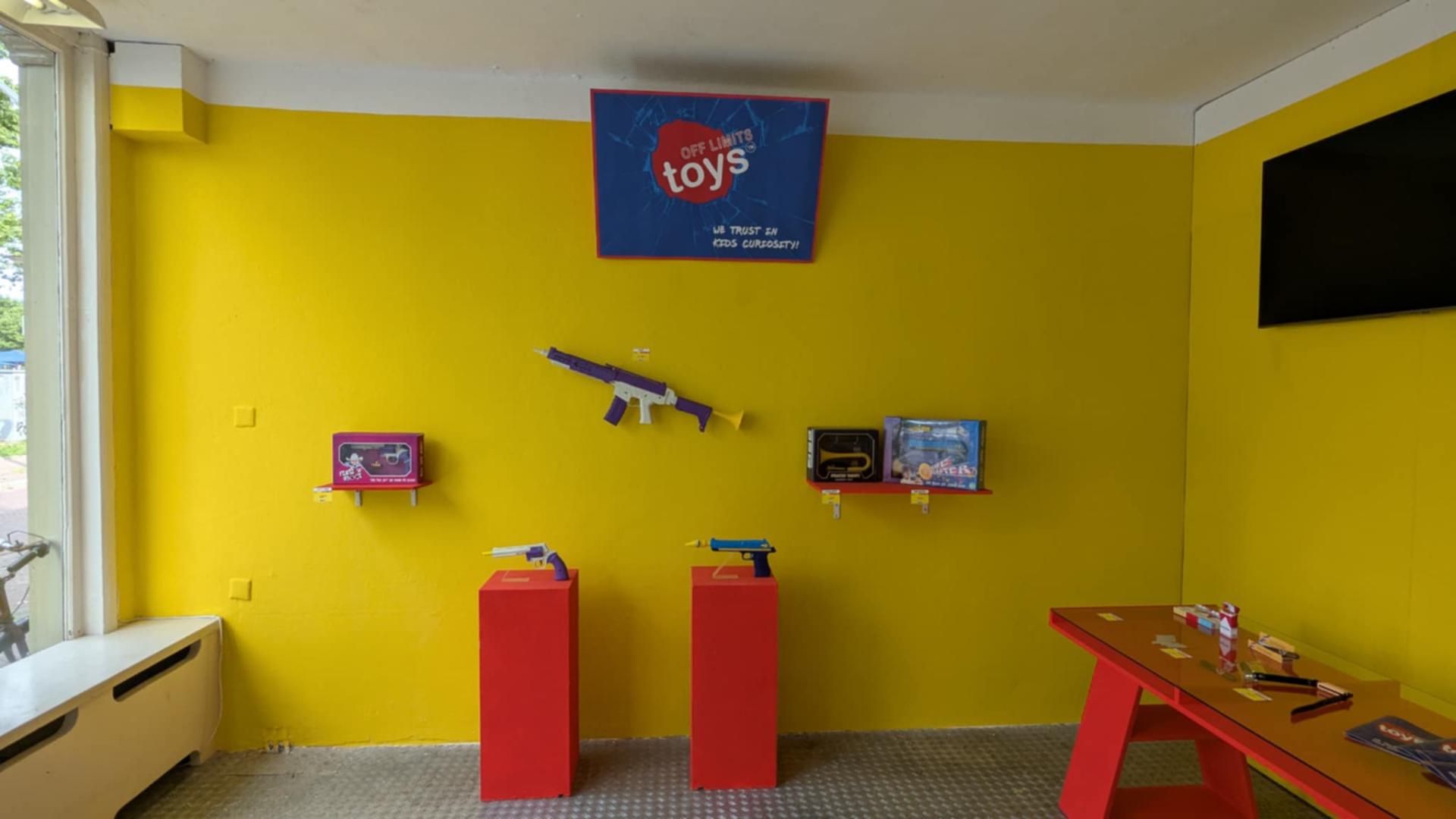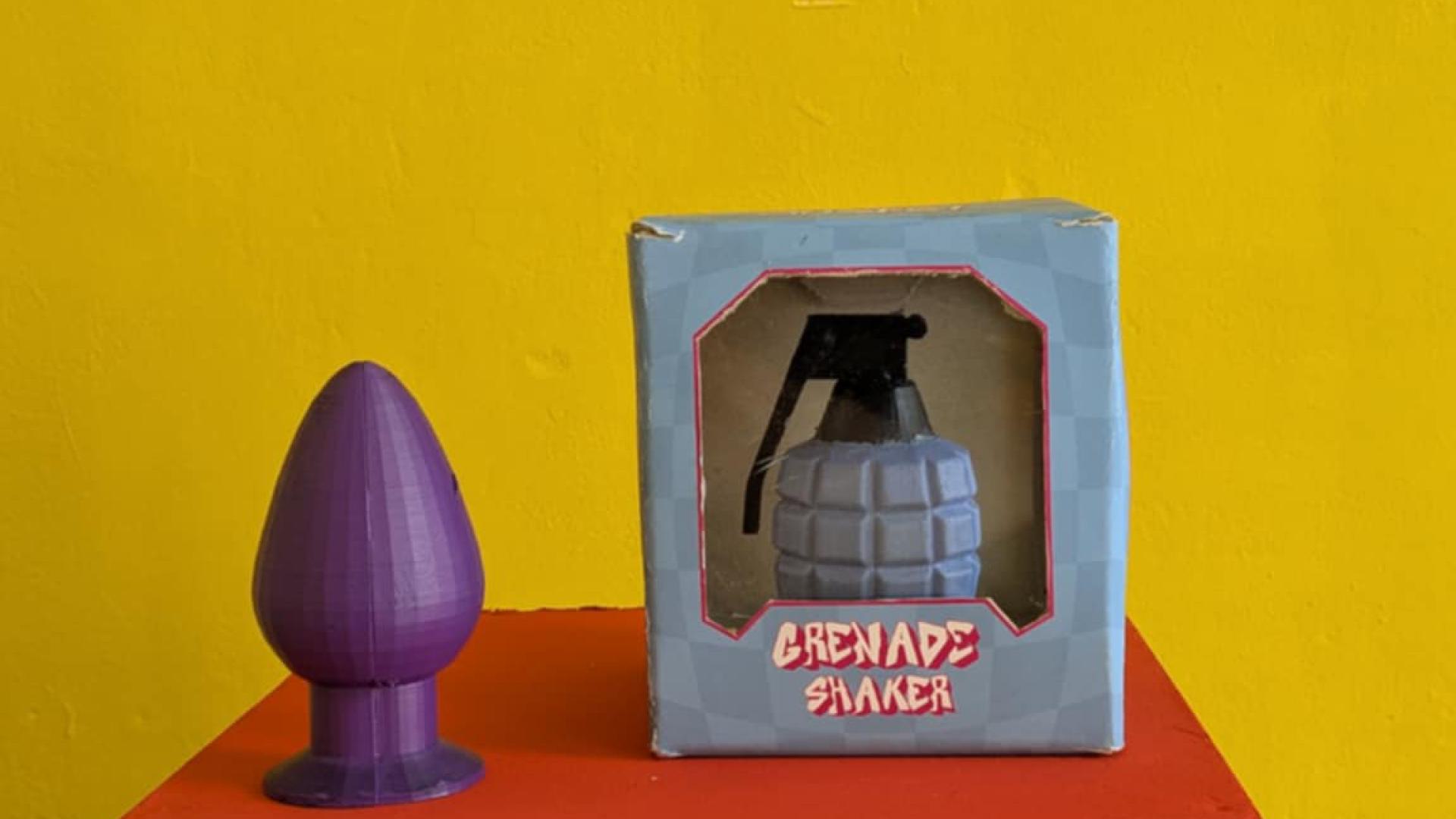Toy Store
Off Limits Toy Store transforms a traditional gallery space into a branded toy store selling “inappropriate” toys for children such as musical instruments modelled after adult-only objects such as guns, sex toys, cigarettes, and alcohol. The store appears to cater to children’s curiosity offering them not only toys, but access to the adult world we claim to protect them from.
Marketing as an Art Form
At the core of this work is an exploration of marketing as a powerful cultural tool that extends far beyond the act of selling products. Marketing is fundamentally about storytelling, framing context, and shaping values. It creates the lens through which we interpret objects, experiences, and even ourselves. In today’s world, everyone engages in some form of marketing, from the way individuals cultivate their personal image on social media, to the polished campaigns of global corporations, to the political narratives governments construct to maintain legitimacy. By approaching marketing itself as an art form, this project demonstrates that influence operates not only through persuasion or manipulation, but also through emotional resonance, the structuring of context, and the projection of ideals. When used intentionally, marketing has the potential to create new spaces for dialogue.
Values and Vision
The marketing within this project is intentionally ambiguous, moving between sincerity and satire. The fictional company positions itself as one that “finally listens to children,” presenting a set of values that emphasize radical transparency, resistance to censorship, intergenerational dialogue, and the conviction that children should be equipped to face the world as it exists—rather than the sanitized version adults prefer to show them. Within this framework, role-play functions as a form of education: a playful rehearsal space where taboos can be explored openly and critically, with guidance rather than avoidance. This becomes particularly urgent in an era where children increasingly educate themselves online, often shaped more by algorithmic feeds than by direct human conversation. By staging this tension within the safe and provocative environment of a toy store, the work encourages reflection on how we define childhood, what ideals and fears we project onto it, and how children’s imitative behaviors ultimately mirror the contradictions of the world adults have built for them.

 Fully wheelchair accessible
Fully wheelchair accessible


